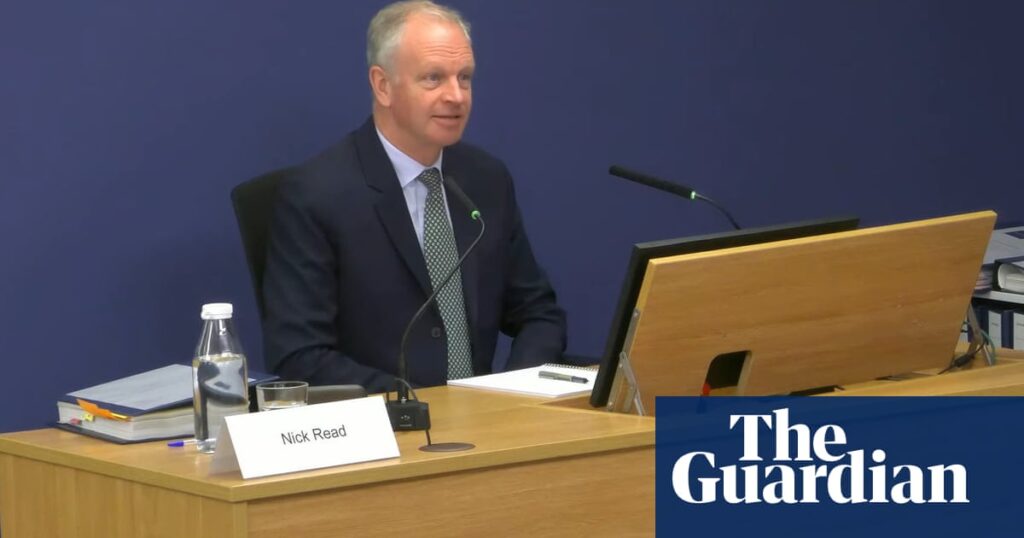In a recent inquiry, the Post Office’s CEO urged the transfer of compensation responsibilities to the government.
Nick Read highlighted the reputational harm caused by the Post Office’s involvement in victim compensation, advocating for governmental control.
CEO Calls for Government Oversight
The Horizon IT scandal has engulfed the Post Office in controversy, leading to a public inquiry into its handling of financial redress. Nick Read, the chief executive, has articulated a compelling case for transferring responsibility for compensation to the government. The administrative processes currently managed by the Post Office are deemed detrimental to its reputation, a sentiment echoed by Read during a recent inquiry session.
A Troubling History
This scandal stems from a faulty IT system that led to the wrongful prosecution of numerous post office operators. The flawed Horizon system falsely reported financial discrepancies, resulting in legal actions that devastated many innocent employees. Read’s testimony revealed that while the Post Office endeavoured to instil independence within compensation schemes, the prevailing mistrust in the organisation hinders its effectiveness.
When questioned by Edward Henry KC, who represents the affected operators, Read acknowledged that the government’s use of the Post Office as a ‘shield or a fire curtain’ was a plausible explanation for subsequent criticisms. He conceded that the Post Office, nearly insolvent, was put at greater risk by handling the compensation processes.
Inquiries and Oversights
Despite multiple hearings held in 2022 and 2023, Read faced criticism for his delayed expression of these views. Counsel Jason Beer KC queried why these corporate convictions weren’t shared earlier. Read admitted to a lapse in communication, suggesting a need for more transparency.
The intricate web of accountability has left many questioning why pertinent staff members involved during the scandal remain employed. Read stated that unless wrongdoing is formally proven, the Post Office cannot unjustly terminate employees who were involved at the time. This highlights the complex interplay of corporate governance and individual rights.
In a meeting with Business and Trade Minister Kevin Hollinrake, the reluctance to terminate staff without substantiated grounds was evident. Read recounted the minister’s disregard for potential employment tribunal challenges, reflecting governmental resistance to superficial resolutions.
Impact on Post Office Operations
The scandal’s repercussions are deeply felt within the Post Office. The state’s decision to intervene in some redress schemes while leaving others under Post Office purview has sparked debate. Read suggested this might be an attempt by the Treasury to impart some of the scandal’s turmoil onto the Post Office. Despite criticisms, a systematic overhaul has yet to occur.
The notion of ‘dragging feet’ in implementing robust measures is prominent in Read’s reflections. The call for a government-led approach to compensation is widely seen as a pragmatic step forward, potentially mitigating further reputational damage to the institution.
The Human Element
The ongoing inquiry delves into the human side of the scandal. Employees who were part of the investigation unit, disbanded in 2015, have become a focal point. Read contended that these individuals possess employment and human rights, complicating any attempts to remove them from the organisation prematurely.
The emotional and professional toll on staff involved underscores the importance of a fair and judicious approach to employment matters. While the inquiry continues to explore these aspects, the precedent for future governance and operational transparency is being set.
Ensuring accountability while preserving the rights and dignity of employees remains a delicate balancing act.
A Call for Accountability
The inquiry’s revelations have led to questions about the leadership’s role and responsibility in the scandal’s fallout. Nick Read’s forthcoming departure highlights the transitional phase for the Post Office. His insistence that no employee is ‘above the law’ is a clear signal of the organisational intent to rectify past missteps.
Read’s approach suggests a move towards a culture of accountability, emphasising the importance of addressing injustices within the system. The government’s involvement is crucial in restructuring the compensation schemes to avoid repeating similar errors in the future.
Conclusion of Inquiry
The ongoing inquiry into the Horizon scandal continues to unfold, with each session shedding light on the complexities involved. As the Post Office navigates this turbulent period, the scrutiny remains on how it will rebuild trust and ensure fair treatment for those wronged by the flawed system.
As the inquiry progresses, the Post Office faces mounting pressure to reform its compensation handling.
A potential shift to government-led processes could restore trust and ensure justice for the affected operators.


